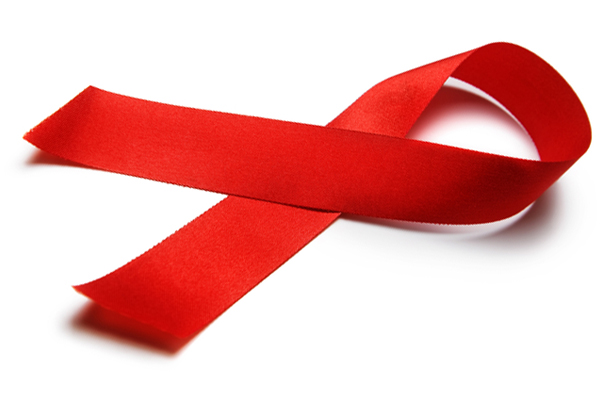There’s no specific eating plan for people with HIV but an overall healthy diet can help your health a lot.
The virus weakens your immune system. Because your body uses nutrients to keep up its defenses against germs, eating well can help you fight off infections. It can also boost your energy, keep you strong, help you avoid health complications, and ease issues brought on by HIV and its treatments.
Follow these simple tips to get started.
1. Eat plenty of fruits and vegetables. They’re high in nutrients called antioxidants, which protect your immune system. Aim to have five to nine servings of produce each day. An easy way to meet that goal is to fill half of your plate with fruits and veggies at each meal. Eat a lot of different produce to get the most vitamins and minerals.
2. Go for lean protein. Your body uses it to build muscle and a strong immune system. Choose healthy options like lean beef, poultry, fish, eggs, beans, and nuts.
You may need to eat more protein if you’re underweight or in a later stage of HIV. Your doctor can help you figure out the right amount for you.
3. Choose whole grains. Like gas in a car, carbs give your body energy.
That makes whole-grain carbs, like brown rice and whole wheat bread, high-end fuel.
They’re packed with energy-boosting B vitamins and fiber. And when you eat plenty of fiber, that can lower your chances of getting fat deposits called lipodystrophy, a potential side effect of HIV.
4. Limit your sugar and salt. Whether because of the virus or the treatment drugs you’re taking, HIV raises your chances of getting heart disease. Too much sugar and salt can harm your ticker. So aim to get less than 10% of your calories each day from foods and drinks with added sugar. You should also have no more than 2,300 milligrams of sodium per day.
5. Have healthy fats in moderation. Fat provides energy, but it’s also high in calories. If you’re not trying to gain weight, limit how much of it you eat. Heart-healthy choices include nuts, vegetable oils, and avocado.
6. See your doctor about any problems related to diet or weight. HIV medications, or the virus itself, can set the stage for eating- or weight-related issues. Talk with your doctor about them, including these common ones:
Loss of appetite. Unwanted weight loss can weaken your body, so it’s important to have enough calories. You may need to eat more energy-dense foods, like peanut butter or other nut butters. “A good option is a higher-calorie shake or smoothie,” says Kristen F. Gradney, director of nutrition and metabolic services at Our Lady of the Lake Regional Medical Center.
ALSO READ: Drones now deployed for health service delivery
Nausea. If foods make you queasy, you may need to eat smaller amounts more often instead of having three big meals a day. Crackers are easy on the stomach for most people, Gradney says. Pair them with some protein, like peanut butter. If even the smell of cooking makes you nauseated, you may want to ask someone else to prepare your meals.
Mouth issues. Have a hard time swallowing or pain from mouth sores? Cook your vegetables soft so they’re not hard and crunchy. Stay away from spicy or acidic foods and rinse your mouth with water before and after you eat.
7. Eat the right amount of calories. Your doctor may recommend a nutritional supplement if you have unwanted weight loss.
But people with HIV often carry too much weight. Being overweight or obese can raise your chances of getting long-term diseases, like heart disease, diabetes, and some cancers. What’s more, it may make your immune system weaker — a recent study found a sign of this in obese people with HIV, compared with those who were at a healthy weight.
8. Drink plenty of fluids. Most people don’t sip enough. Make sure to have at least eight to 10 cups of water or other healthy drinks during each day. Liquids help carry nutrients and flush out used medications from your body. They can also lift your energy levels and keep you from getting dehydrated. You’ll need to drink more if you’ve got diarrhea or you’re nauseated, Gradney says.
9. Follow food safety rules. Because HIV lowers your body’s defenses against germs, “even a mild case of food poisoning can lead to a serious infection or illness,” Gradney says.
Practice these good-for-you habits:
Wash your hands with soap and water before and after you eat. Also wash cutting boards and utensils after every use.
Avoid raw eggs. Cook all meat, seafood, and poultry until they’re well-done.
Thaw frozen meats and other foods in the fridge or microwave.
Rinse all fresh fruits and veggies with clean water.
Check expiration dates, and throw away any food you think is old.
Reheat leftovers thoroughly before you eat them.
If you’re traveling abroad and you’re not sure if the water’s OK to drink, stick to bottled water and avoid ice and unpasteurized drinks.

 Entertainment5 days ago
Entertainment5 days ago
 Health1 week ago
Health1 week ago
 Health4 days ago
Health4 days ago
 Football1 week ago
Football1 week ago
 Football1 week ago
Football1 week ago
 Crime4 days ago
Crime4 days ago
 Crime1 week ago
Crime1 week ago
 Education6 days ago
Education6 days ago

